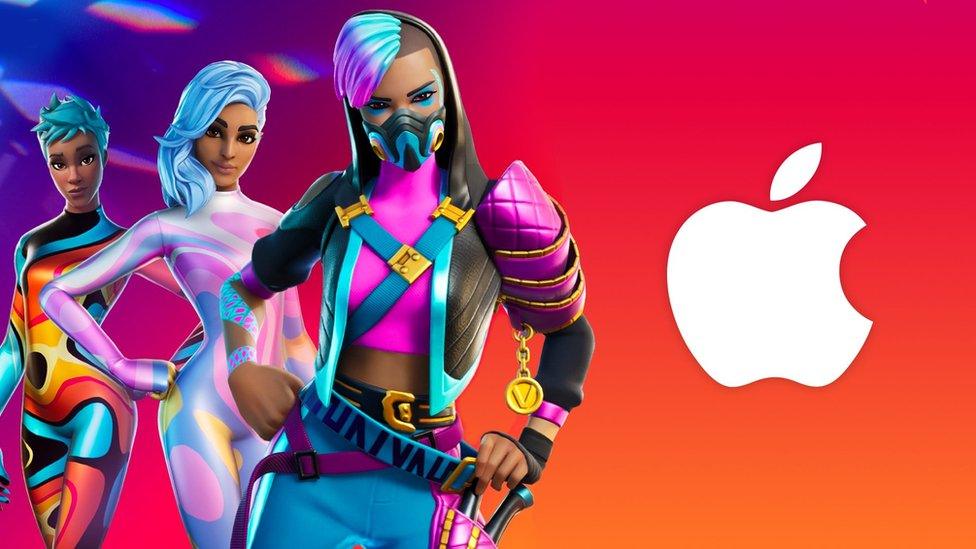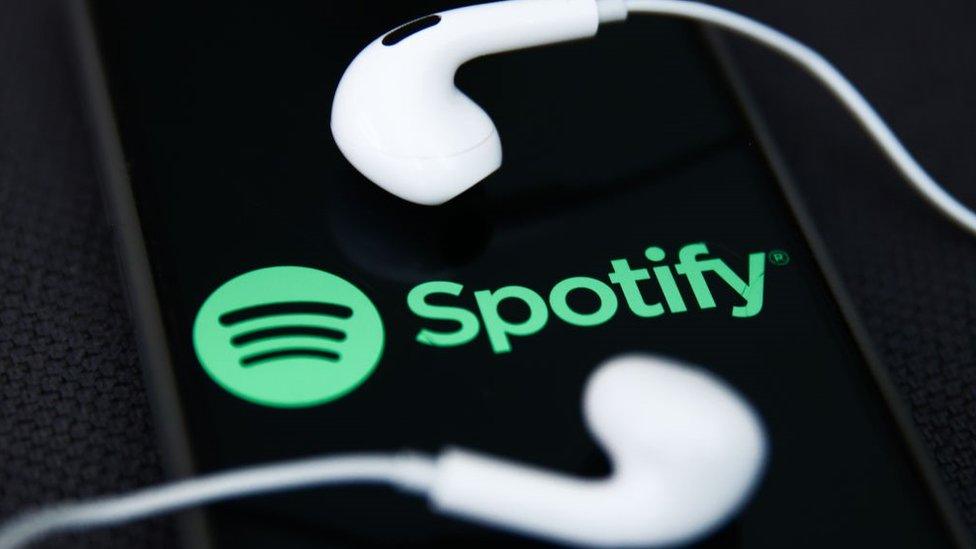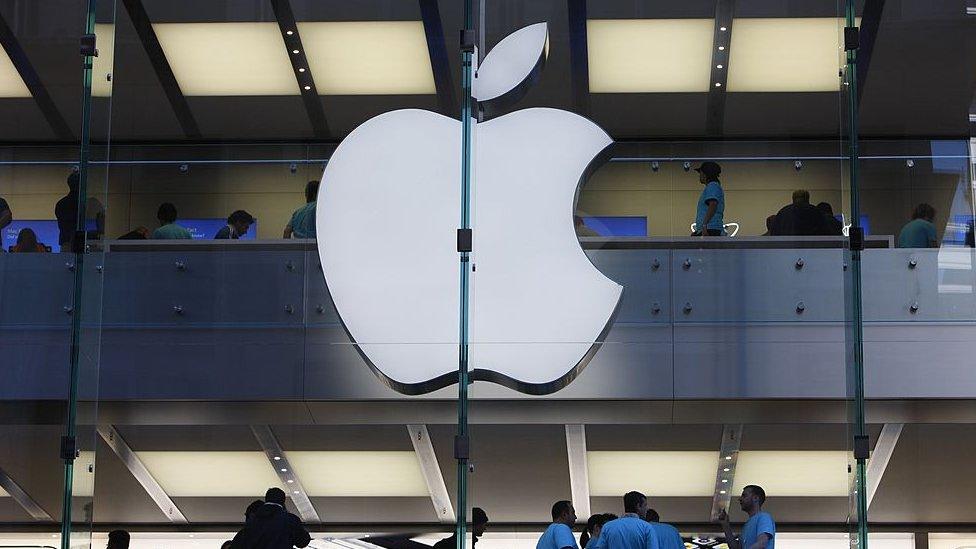Fortnite to come back to iPhones in EU
- Published
- comments

Popular video game Fortnite will come back to iPhones after a four-year absence.
Developer Epic Games will be allowed to run its own app store on Apple devices after a new EU law designed to increase competition.
Currently, anyone with an iPhone can only download apps from Apple's own App Store.
But Apple must allow its customers to access alternative app stores on iOS devices purchased in the EU from March.
Apple has always maintained that its rules protect users' security.
In a post on X,, external formerly Twitter, Fortnite wrote: "Remember Fortnite on iOS? How bout we bring that back."
It added: "Apple, the world is watching."
Epic Games famously withdrew hit game Fortnite from the App Store after disagreeing with Apple's policies. It has not been available on the App Store since 2020, although it is possible to play it via the web.
Apple had been accused of creating a monopoly, giving customers and developers no choice but to go through its own channels, and charging developers up to 30% commission.
It has meant that developers who either fail to meet Apple's standards for being on the App Store, or do not wish to pay its fees, are excluded from the millions of people who use Apple gadgets.
In Fortnite's X post, it also wrote: "Shoutout DMA - an important new law in the EU making this possible."
That refers to the EU's Digital Markets Act coming into effect. The aim of the new law is to regulate the largest companies that are gatekeepers to services such as search engines and app stores to make the market fairer for established companies and smaller firms.
The changes will not apply in the UK at this stage - although the UK's Digital Markets Bill, which is currently going through Parliament, is likely to put Apple's practices under similar regulatory scrutiny.
Epic Games chief executive Tim Sweeney said on X, external there was a lot of "hot garbage in Apple's announcement".
These include, he said, "junk fees on downloads".
He may be referring to the core technology fee, external, which charges developers of apps that are downloaded by over a million people.
Developers will have to pay €0.50 for every user who downloads their app, after the first million downloads.
This is a charge to the makers of apps, not to the customers.
Browser choice
Apple also said it would further open up browser choice, so that EU users will be able to opt out of using the firm's Safari web browser from the very first time they open it.
But it warned that while it was setting high standards for all new alternative apps and stores, it believed the move would create additional security risks for customers, and increase their risk of being exposed to malware, fraud and scams hidden within apps from other places.
"The changes we're announcing today comply with the Digital Markets Act's requirements in the European Union, while helping to protect EU users from the unavoidable increased privacy and security threats this regulation brings," Apple said.
The US tech giant sells premium-priced products, with the promise that they offer an extra layer of security.
It said: "For apps that use alternative payment processing, Apple will not be able to issue refunds, and will have less ability to support customers encountering issues, scams, or fraud."
Android apps can already come from a wider variety of stores. However, as a result, malware is far more common on Android devices than Apple ones.
The purpose of both the new EU rules and UK proposals are to try to maintain open and competitive markets where lots of companies can successfully operate alongside each other.
- Published18 January 2024

- Published17 January 2024
